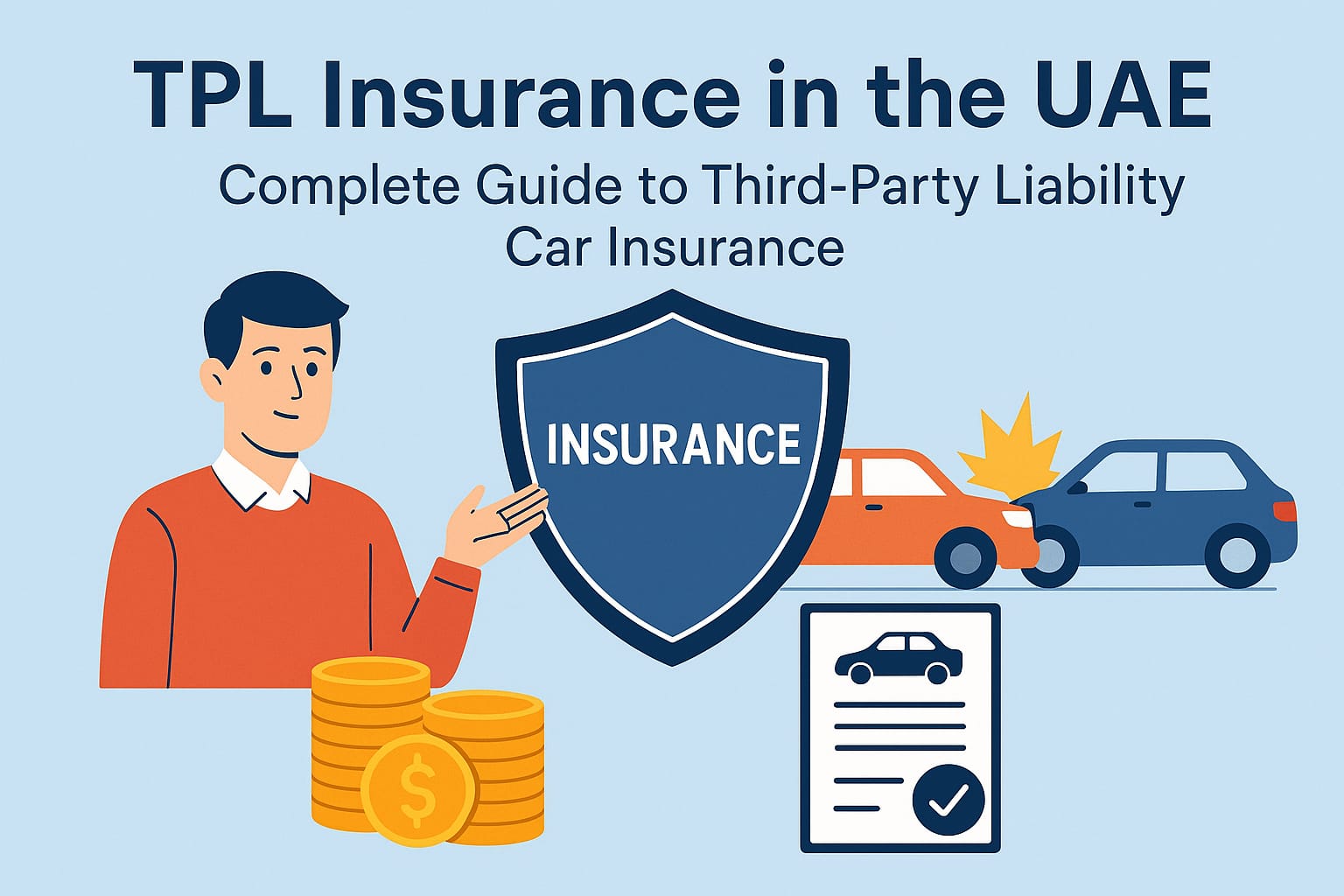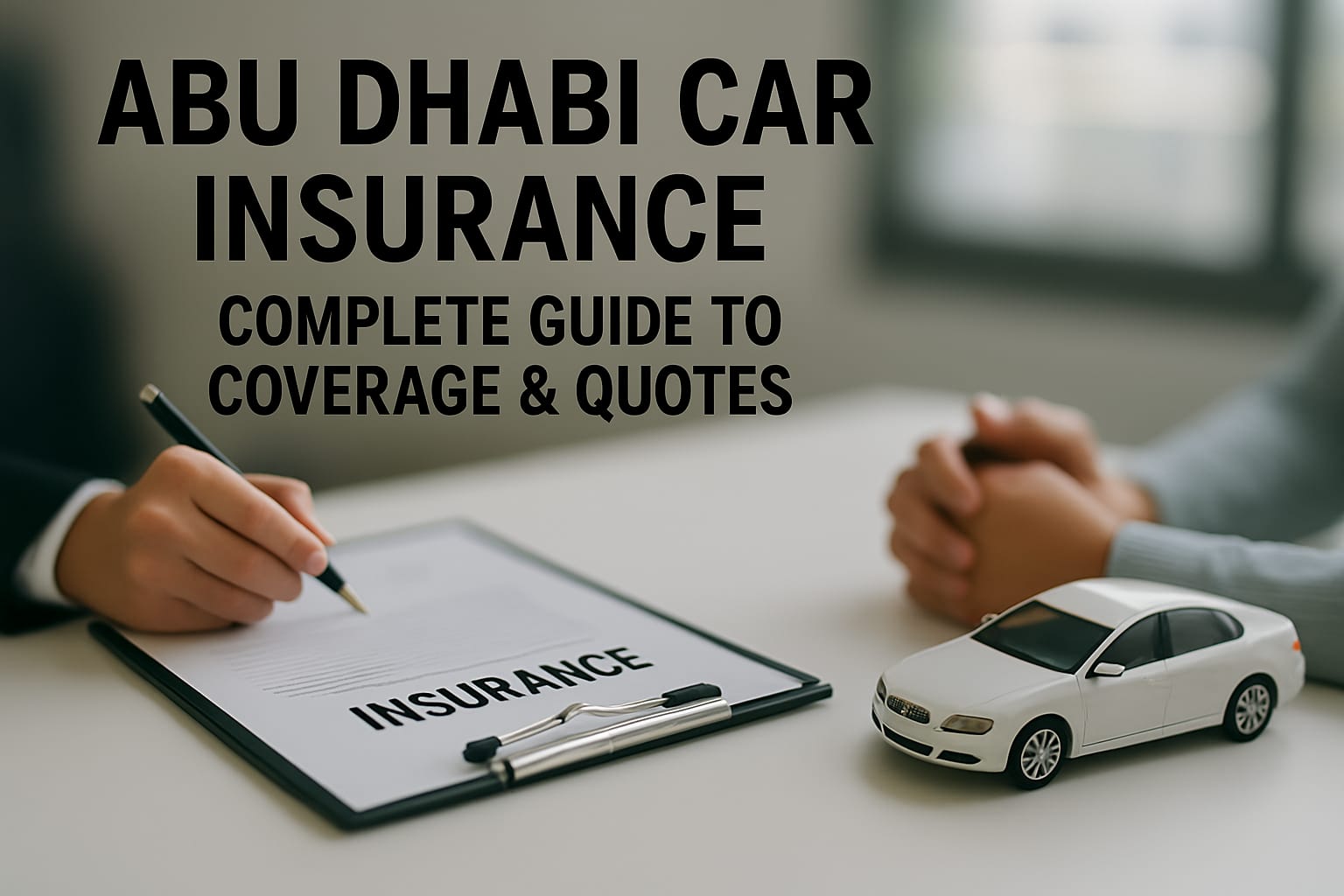If you’ve ever tried to get car insurance in the UAE, you know that insurance companies don’t just hand over a policy without first asking a few key questions. But why do car insurance companies ask these questions? What purpose do they serve, and how can you, as a car owner, ensure you’re prepared for them?
This article lists the most common questions car insurance companies ask and explains why they matter, helping you be better prepared for your next insurance quote.
Why are these questions important?
At the core of any car insurance process, insurers need to assess risk. All the questions car insurance companies ask help them understand how likely you are to file a claim and how costly that claim might be. This process is called underwriting.
Understanding the questions asked by car insurance companies in the UAE allows you to give accurate information that can ultimately lead to the most suitable coverage and rates. This also decides the price of your car insurance.
Let’s dive into the most common questions you can expect and why they matter.
Questions car insurance companies ask
What kind of car do you drive?
One of the major questions car insurance companies ask is about the make, model, and year of your vehicle. This is important because certain cars are more expensive to repair, easier to steal, or more likely to be involved in accidents.
- Luxury cars may cost more to repair, resulting in higher premiums.
- Sports cars are often associated with faster driving and higher accident rates.
- Older cars might not have modern safety features, increasing the risk of injury or damage.
Why it matters: Insurers calculate how much it would cost to repair or replace your car if it’s damaged, stolen, or written off. High-value or high-risk vehicles often result in higher insurance premiums.
How often do you drive?
Amongst other critical questions car insurance companies ask is how much time you spend on the road. Insurance companies might ask how many kilometres you drive annually or whether you use your car for personal or business purposes.
- Low mileage often results in lower premiums because you’re less exposed to risk.
- Business use can increase your premium since you’re on the road more frequently.
Why it matters: The more time you spend on the road, the higher your chances of encountering an accident, which directly affects your insurance cost.
Where do you stay?
Your residence is an important factor for car insurers. Whether you live in a busy urban area or a quiet suburb can influence your insurance premium.
- City living often means higher premiums due to higher traffic and a greater risk of accidents or theft.
- Suburban or rural areas may come with lower premiums as there’s typically less risk of damage or theft.
Why it matters: Where your car is mostly located plays a role in determining the risk of theft, accidents, or damage. Living in high-traffic or high-crime areas increases the risk for insurers.
What is your driving history?
Your driving record plays a great role in determining your premium. One of the main questions asked by car insurance companies is whether you’ve had any accidents or traffic violations.
- No accidents or violations means lower premiums.
- Multiple traffic offences suggest a higher risk for insurers.
Why it matters: A history of accidents or tickets shows that you’re a higher risk on the road, making you more expensive to insure.
What is your age?
One of the typical questions car insurance companies ask is about age, which is a major factor influencing your car insurance premium.
- Young drivers typically have less experience and are statistically at a greater risk of being involved in accidents.
- Older drivers may have slower reaction times, increasing the risk of accidents.
Why it matters: Your age can impact how much risk the insurer associates with your driving and, thus, how much you pay for coverage.
Who will be driving the car?
Insurers will ask who the primary driver is and if anyone else will be regularly driving the vehicle.
- Inexperienced drivers can raise premiums because they’re considered higher risk.
- Experienced drivers with clean records might help lower the premium.
Why it matters: If multiple drivers are using the car, especially young or inexperienced ones, the risk of an accident is higher.
Do you have any anti-theft devices installed?
Insurance companies may ask if your car has any anti-theft devices such as alarms, GPS trackers, or immobilisers. Vehicles with these devices often benefit from lower premiums.
- Alarms and immobilisers lower the risk of theft, which can reduce the cost of insurance.
- GPS trackers help recover stolen vehicles faster, making them less risky.
Why it matters: Cars equipped with anti-theft devices are less likely to be stolen or damaged, which can result in a discount on your car insurance.
What coverage are you looking for?
Before providing a quote, insurance companies need to know what type of coverage you want: third-party or comprehensive insurance.
- Third-party coverage only damages you cause to others.
- Comprehensive covers both damages to your car and others, plus theft and other risks.
Why it matters: More coverage typically means higher premiums, but it also offers better protection.
Have you made previous claims?
Insurance companies ask about your past claims to determine your likelihood of making a claim again.
- No claims could result in a no-claims bonus or discount.
- Frequent claims suggest higher risk and may increase your premium.
Why it matters: A clean claims history suggests you’re a low-risk driver, while frequent claims could indicate future losses for the insurer.
How to be prepared for these questions
Here are some key steps to help you be fully prepared for the questions car insurance companies ask when applying:
- Gather your driving history: Collect records of any accidents, traffic violations, and claims you’ve made in the past. This will help you provide accurate information when asked.
- Prepare your vehicle details: Be ready with the make, model, year of manufacture, vehicle number, and any additional features or modifications made to the car.
- Collect previous insurance information: Have your current or past insurance policy details, including your no-claims discount history, readily available.
- Know your mileage: Estimate how many kilometres you drive annually to give insurers an accurate number.
- Be honest with your answers: Always provide truthful and accurate information. Any misrepresentation or false information can invalidate your policy or lead to claim rejections.
- Consult your insurer: If you’re unsure about a specific question or detail, don’t hesitate to check with your insurance company for clarification.
Final takeaway
Knowing the questions car insurance companies ask, you can be better prepared and even find ways to reduce your premiums. The key is to provide accurate information and understand how insurers assess risk. From your car’s make and model to your driving history, every detail plays a role in the final insurance quote you receive.
If you need any further clarification, always check with your insurance provider to ensure you provide the right answers and get the most accurate quote.
Frequently Asked Questions (FAQs)
Why do car insurers ask about my driving habits?
Your driving habits, including annual mileage and usage (personal or business), help insurers assess how often you’re on the road, impacting your risk of accidents and, thus, your premium.
Can my credit score affect my car insurance in the UAE?
Some insurers in the UAE use credit scores to predict how likely a person is to file a claim. It’s always a good idea to check with your insurer about their specific criteria.
Does modifying my car affect my insurance?
Modifications like custom paint jobs, engine upgrades, or high-end sound systems can increase your insurance premium as they may increase the car’s value or risk level.
What is a no-claims discount, and how does it work?
A no-claims discount rewards drivers who haven’t made insurance claims over a specified period, usually resulting in reduced premiums. The longer you go without making a claim, the bigger the discount.
Why does my insurer need details about other drivers?
Insurance companies must know if anyone else will drive your car regularly. If the other driver is young or inexperienced, this could raise your premium due to higher risk.
How does my job affect my car insurance?
Some jobs are considered higher risk due to more frequent driving or stressful work environments, which could increase your premium. For example, delivery drivers might face higher premiums than office workers.






